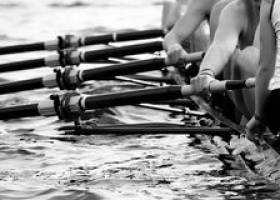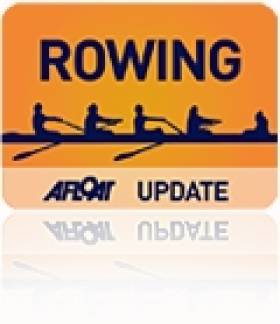Displaying items by tag: FISA
Fisa Bans All But Six Russian Rowers From Olympics
#Rowing: Only six Russia competitors have been cleared by Fisa, the governing body of rowing, to compete at the Olympic Games. Twenty were ruled ineligible as records were scrutinised in line with the International Olympic Committee’s guidelines on drug testing. One Irish crew, the lightweight women’s double, is affected. The Russia crew of Alena Statagina and Anastasiia Ianina will not be allowed participate, and their place will be offered to Italy.
The full Fisa statement reads:
The FISA Executive Committee has made a final decision related to Russian participation for rowing in Rio 2016 in accordance with the IOC Executive Board’s decision, point 2.3.
IOC Decision, point 2.3 – “IFs should carry out an individual analysis of each athlete’s anti-doping record, taking into account only reliable adequate international tests and the specificities of the athlete’s sport and its rules, in order to ensure a level playing field”
Russia has qualified five boats and entered 26 rowers and two coxswains for the Olympic Games in Rio de Janeiro. The athletes’ names were entered by the Russian Olympic Committee (ROC) by the deadline of 18 July 2016. Testing information collected from FISA, WADA, the Russian Rowing Federation (RRF), RUSADA and UK Anti-Doping shows that a total of 1679 blood and/or urine tests were carried out between 2011 and June 2016 on all Russian rowers. For the Russian rowers entered for Rio, 547 blood and urine tests were conducted since 2011. None of the 28 athletes entered on 18 July have tested positive in the last five years.All of these tests are fully documented in the WADA online documentation tool called ADAMS.
However, WADA’s Independent Person (IP) report reveals that the Moscow Laboratory was under the control of the Deputy Minister of Sport and was using the Disappearing Positive Methodology scheme to manipulate test results. It also states that the IP has “only skimmed the surface of the extensive data available.” Therefore, the FISA Executive Committee reviewed each entered Russian rower in order to assess the adequacy and reliability of their “international” testing (the analysis of the samples performed at a WADA accredited lab other than Moscow), taking into account the specificities of the sport of Rowing.
IOC Decision, point 4. “The IOC will accept an entry by the ROC only if the athlete’s IF is satisfied that the evidence provided meets conditions 2 and 3 above, and if it is upheld by an expert from the CAS list of arbitrators appointed by an ICAS Member”
The FISA Executive Committee, due to the manipulation of the Moscow Laboratory tests, has determined, based on the assessment of independent testing of all rowers, the following will be permitted to enter:
CHAUKIN, Aleksandr
EFREMENKO, Georgy
KOSOV, Artem
MORGACHEV, Nikita
RYABCEV, Vladislav
ZARUTSKIY, Anton
The remaining 17 entered rowers and two coxswains (besides the three rowers revealed yesterday) are not at all considered to have participated in doping, but do not meet the conditions established by the IOC in their decision of 24 July 2016 for participation in the Rio 2016 Olympic Games.
Effect of this decision
The effect of this decision is that Russia has six remaining eligible rowers - one lightweight and five open weight men - for competition in Rio 2016.
Therefore, four Russian boats (LM4-, LW2x, M8+ and W8+) will be withdrawn from participation in the Games and will be attributed to the next placing crews at the 2016 Final Olympic Qualification Regatta in Lucerne, Switzerland, as follows:
LM4- to Greece, the Hellenic Rowing Federation
M8+ to the Italian Rowing Federation
W8+ to the Australian Rowing Federation
And in the 2016 European Continental Qualification Regatta in Lucerne, Switzerland:
LW2x to the Italian Rowing Federation
Russia has the possibility to form a men’s four (M4-) with the eligible six rowers for competition in Rio 2016. We await the Russian Rowing Federation’s decision on this possibility.
Any issues with the Russian participation at the Paralympic Games will be dealt with at a later date.
Limerick Hits Mark With Well-Run World Rowing Coaches Conference
# ROWING: The World Rowing Coaches Conference in Limerick over the weekend saw Irish delegates mix with the men and women who guided crews to glory at London 2012 in a well-run event. The presentation by Thomas Poulsen of Denmark was highly-praised, and there was a thought-provoking talk by German team psychologist Dr Annelen Collatz. Gearoid Towey spoke about the importance of managing the transition of athletes to life away from top-class sport and Martin McElroy also made a presentation.
The year of the Olympic Games is a good time to hold this event and delegates got a feel of being in the engine of world rowing as top coaches and mentors thrashed out proposed changes to rules which can be made early next year. A proposal to put the onus on each athlete to reach a set weight in a lightweight boat was controversial and discussed at length on Saturday evening.
The World Rowing Awards for 2012 were presented to the South Africa lightweight four (male crew of the year) and Britain’s women’s double sculls (female crew of the year). The coach of the year was Dick Tonks of New Zealand and single sculler Huang Cheng of China took the award for adaptive crew of the year. Di Ellis was given the award for distinguished service to rowing.
At the conclusion of the business side of the event, John Boultby, the chairman of Fisa’s competitive rowing committee, said the logistical organisation in Limerick had been “superb”.
Irish Rowing News. Rowing Clubs, Regattas, Sculling & Coastal Rowing
Afloat's rowing coverage encompasses the widest range of activities undertaken on Irish lakes, rivers and coastal waters. We aim to bring jargon free reports separated in to popular categories to promote the sport in Ireland.
Click this link for the latest Irish Rowing News and Results.
Rowing is one of the oldest of all sports, and FISA (Federation des Societes d'Aviron) the governing body of the sport, which was founded in 1892, is the oldest international sports federation in the Olympic movement. FISA has 128 member federations worldwide, organises World and Olympic Championships and World Cups and promotes all forms of rowing – including the non-Olympic event of Coastal Rowing.
The Irish Amateur Rowing Union, a federation of rowing clubs, has a history almost as long as the international body: it was founded in Dublin in 1899. Now reconstituted as Rowing Ireland, in 2010 the union had 69 affiliated clubs spread throughout the island of Ireland and 2,500 registered athletes. The National Rowing Centre is based at Farran Wood on Inniscarra Lake in County Cork. The domestic season traditionally culminates in the National Championships in mid-July.
Rowing is divided into sweep rowing and sculling. Sweep rowing involves the participant using both hands on one oar; in sculling the participant holds one oar in each hand. Boats may include a cox (coxwain), who generally steers the boat by means of wires, and guides and rallies the crew. In the shorthand of the sport, coxless crews are denominated by a minus (e.g. a men's coxless four is M4-). Senior sculling crews generally do not include a cox. The set distance for competition in regattas is 2,000 metres. Six-lane racing is standard.
The Olympic Games are the highest level at which rowers compete: there are 14 Olympic rowing classes, eight for men and six for women. Only three of these are in the lightweight classification, the most successful one for Irish rowers: men's fours (LM4-) and double sculls (LM2x) and women's double sculls (LW2x).
Individual oarsmen in lightweight crews cannot exceed 72.5 kilograms, and the average weight of a lightweight crew, excluding the cox, cannot be over 70 kgs. A single sculler cannot be above 72.5 kgs. The equivalent for women are 59 kgs (highest weight) and 57 kgs (average for oarswomen in a crew).
Ireland's best results at the Olympic Games came in 1996 and 1976. At Lake Lanier in the 1996 Games the men's lightweight coxless four crew of Tony O'Connor, Neville Maxwell, Sam Lynch and Derek Holland were beaten by less than a second for the bronze medal. In 1976 in Montreal Sean Drea finished fourth in the men's single sculls. In 2004 the Ireland lightweight four finished sixth in Athens.
The annual World Rowing Championships feature the 14 Olympic events and eight others for able-bodied athletes along with four adaptive events. The Championships have been a much happier hunting ground for the Irish, especially in the non-Olympic events. Niall O'Toole won gold in the lightweight single scull in 1991 and in 2001 Ireland won three World Championship golds: Sam Lynch (lightweight single scull); Sinead Jennings (women's lightweight single) and Tony O'Connor and Gearoid Towey (lightweight pair). Lynch sucessfully defended his title in 2002.
After the Olympics and the World Championships, the third big rowing competition is the World Cup series, usually three regattas in Europe. The World Under-23 Championships, the World Junior Championships, and, for countries in these islands, the Home Internationals, are also big international events. The European Championships were revived in 2006 after a three-decade break and Ireland took part in 2010.
Henley Royal Regatta, with the finals in July each year in the English town, has a special place in the calendar due to its history and its social aspect.
Our coverage though is not restricted to the Republic of Ireland but encompass Northern Ireland Scotland, Wales and the Irish Sea area too.
We're always aiming to build on our rowing content. We're keen to build on areas such as online guides on rowing. If you have ideas for our pages we'd love to hear from you. Please email us at [email protected]






























































